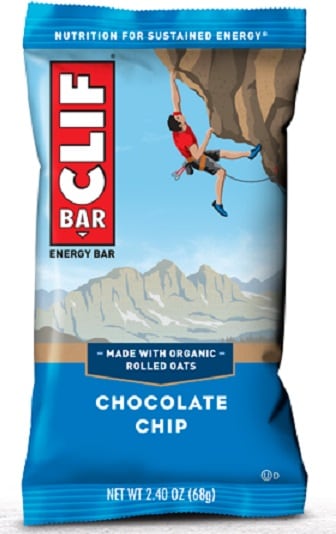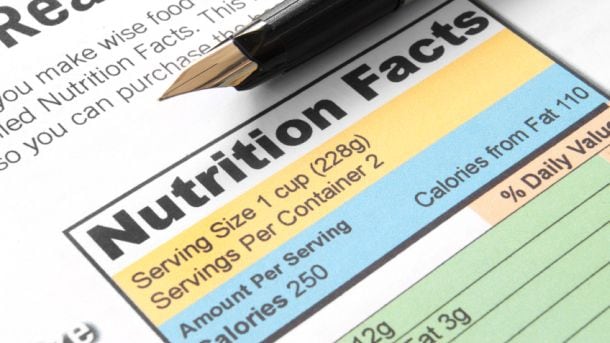Clif Bar is one of several high-profile brands to be sued for allegedly adding ‘excessive’ amounts of sugar to products marketed to health-conscious consumers.
While there is no specific regulation that disqualifies food brands from implying or stating that products are healthy or nutritious based on sugar content, the plaintiff claims many consumers may not realize that a quarter to a third of calories in classic Clif bars are derived from added sugar.
This means that a single bar with up to 22g added sugar could account for 44% of the FDA’s new 50g daily value for added sugar (10% of energy based on a 2,000 calorie diet) or 88% of the World Health Organization’s ‘ideal’ daily limit of 25g (5% of energy).
Clif Bar: ‘A reasonable consumer would know that the challenged products contained added sugar’
In a motion to dismiss the lawsuit filed on May 31, however, attorneys for Clif Bar argued that the complaint “is based on factually unsupported conclusions that Clif Bar products are ‘high-sugar’ (a term not defined by FDA), and on speculative concerns about the long-term health risks of excessive added sugars.”
The lawsuit featured a “compendium of irrelevant and immaterial scientific reports” about the effects of excessive consumption of sugary soda designed to “distract the court,” added the attorneys, who noted that Clif bars are “solid foods that also contain proteins, fiber, and other complex carbohydrates.”
Consumers expect energy bars to contain sugar, they added, noting that “Clif Bar never affirmatively represented that the products were healthy” or that they contained no added sugar: “A reasonable consumer would know that the challenged products contained added sugars, and that the added sugars were part of the promise of energy.”

How much added sugar is in Clif Bars?
‘Classic’ Clif bars contain 17-22g of added sugar, with 25-34% of calories derived from added sugar.
Clif Kid Original Z bars contain 11-12g per serving, with 34-37% of calories from added sugar; Clif Kid ZBars Protein contain 8-9g added sugar (25-28% of calories); Clif Kid ZBars Fruit and Veggie contain 8g added sugar (25% of calories); and Clif Kid filled bars contain 6-7g added sugar (17-22% of calories).
To put this in perspective, yogurts typically contain 12-18g sugar per serving, while a small [8oz] glass of Tropicana Original 100% orange juice has 22g sugar.
In the cereal aisle, Raisin Bran Crunch contains 19g of sugar per 53g serving, and Honey Nut Cheerios - the best-selling cereal in the US - contain 9g of sugar per 28g serving.
The FDA explicitly rejected calls for on-pack warnings about added sugar
And while the sugar level in some of the bars might seem high if you describe it as a percentage of the bar’s energy (eg. sugar accounts for 34% of calories in some bars), it is not in excess of the FDA or AHA daily value recommendations, they add.
“Even the Clif Bar products with 22g of added sugars are still within Plaintiffs’ description of the AHA recommended [25g] daily level [although this would not leave you with much room for maneuver].”
As for the argument that Clif Bar and other brands have a duty to warn shoppers about the dangers of excessive added sugar, the attorneys note that the FDA explicitly rejected this contention in its final rule to revise the Nutrition Facts panel.
Responding to a public comment it had received requesting health warnings on certain foods, the FDA said:
“The comment said that, similar to cigarette packets, consumers should be warned of the health effects of added sugars. We decline to revise the rule as suggested by the comments. The statements are not consistent with our review of the evidence… and we do not require warning labels or disclaimers for other nutrients on the label. Furthermore, some added sugars can be included as part of a healthy dietary pattern.”

The FDA recently set a daily reference value of 50g added sugar, or 10% of calories based on a 2,000-calorie diet to be included on the new-look Nutrition Facts panel. It does not define ‘high’ or ‘low’ sugar, and only sets conditions of use for ‘reduced/less/lower sugar’ claims, which Clif Bar is not making.
We’re making energy bars, so they contain carbs…
Keely Wachs, director, company affairs, at Clif Bar, told FoodNavigator-USA in April that the firm's bars were “energy foods designed for active lifestyles, and include carbohydrates to provide the energy required to perform in these types of activities” but noted that, “In addition to CLIF Bar and Zbar, we provide a portfolio of nutritious bars for adults and kids with lower sugar for less active eating occasions.”
Other food manufacturers targeted in similar suits (Mondelez, Kellogg, Post, General Mills) have deployed multiple arguments, including that their first amendment rights are being threatened.
Speaking to us in January, Perkins Coie partner Charles Sipos said: “In these lawsuits, plaintiffs argue that it is unlawful to even state something truthful about the beneficial aspects of your product simply because it has this much sugar in, which is a classic first amendment restriction on commercial speech… What you might see happening is that this [first amendment defense] works into more sugar cases in 2018.”
*The case is: Ralph Milan, Sarah Aquino, and Elizabeth Arnold v Clif Bar & Company, 3:18-cv-02354 filed on April 19 in the northern district of California, by the law offices of Jack Fitzgerald PC and Paul K Joseph PC.
